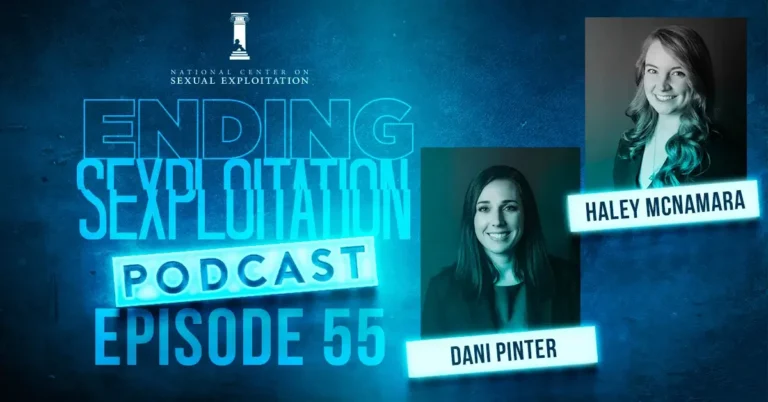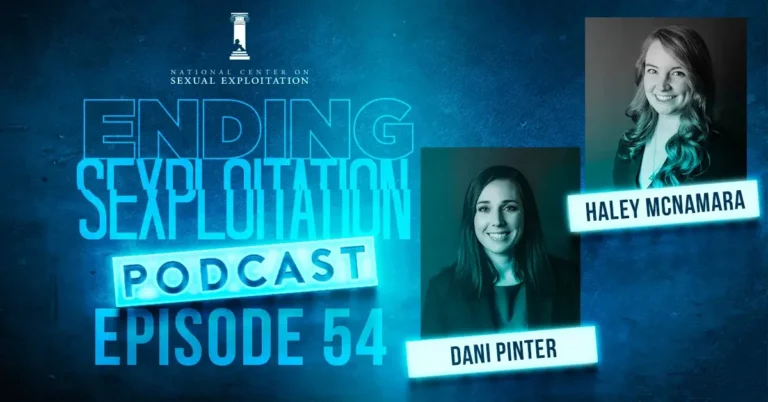Snapchat has consistently been ranked among the most important social networks for U.S. teens and has long been considered one of the most dangerous apps for children. Its very design – being centered around disappearing messages, videos, and photos – makes it extremely appealing to kids wanting to hide problematic behaviors (sexting, buying and selling drugs, cyberbullying, etc) and for predators looking to cover their tracks. Unlike other social media accounts where a lot can be seen on the surface, the content shared on Snapchat is hidden. Other than taking their phones, there was very little parents and caregivers could do to see and influence what was happening on their kids’ Snapchat accounts.
Until today.
Snap has finally launched the Family Center: a new tool to help caregivers gain insight into who their children are interacting with on the popular app.
For the past six years, NCOSE has been advocating with Snapchat to give parents greater oversight and insight into their children’s Snapchat activities. Our team also participated in discussions and official expert consultations around the Family Center development. We are thrilled that as of August 9, 2022, it is available in the U.S., UK, Canada, Australia, and New Zealand, and will be rolled out to other international markets in the coming weeks.
If you have children on Snapchat or know other parents/caregivers who do, we strongly encourage taking full advantage of these new tools!
Keep reading for a breakdown of what the tools do, how to get them, and what more NCOSE would like to see Snap change to protect its young users.
What are the key features of the new Snapchat Family Center?
- Parents can see their kids’ “Friends” list and as well as both when and with whom they are messaging. However, parents are still unable to see the content of the messages.
- Parents and caregivers can more easily report concerning accounts directly to Snaps’ Trust and Safety teams without their children’s knowledge or permission. But parents are still unable to block or remove their children’s “Friends.”
- New resources to help caregivers and kids have constructive and open conversations about online safety. Unfortunately there is no information related to sexual abuse or exploitation, both of which are major risks on the platform.
How to access the Snapchat Family Center tools for Parents and Caregivers
Step 1: If you don’t already have one, you’ll need to create a Snapchat account for yourself.
NOTE: We always encourage parents to have accounts on the same apps and games their kids use to better understand how they work, understand the pros and cons/ delights and dangers, and to gain insight into why your kids may enjoy them.
Step 2: Find Family Center
Step 3: Add your teen as a “Friend.” They’ll need to accept your invitation to be “Friends.
IMPORTANT: Kids under 13 are not allowed to be on Snapchat and other social media platforms not explicitly designed for kids 12 and under (e.g. YouTube Kids, etc). NCOSE joins Protect Young Eyes and other child safety organizations in advocating for no social media for teens until at least 15 – 16 years of age given where young teens are in their development process. #DelayIsTheWay)
Step 4: Once you are “Friends” you can send your teen an invitation to join Family Center. They need to accept your invitation in order for Snapchat Family Center to work. If they refuse to accept, do your best to remain calm and use this moment as an opportunity to (ideally) continue or start having conversations about your family values and agreements around tech use. If you need some guidance in how to do that in a loving and supportive way that build relationships we recommend checking out the PROTECT App.
IMPORTANT: If your teen has created an account with a fake birth year that designates their account as being over 18 (as many do), they will not be able to accept your invitation. A correct birth year is also important for triggering other safety measures for minors as well – such as defaulting their accounts to private and reducing access by strangers. Many kids enter adult birthdays to bypass what they see as limitations on the platform. Snapchat does not let users change their birthyear (this was a critical safety feature we asked for). If your child doesn’t invite you, this could be an indicator that they’ve entered in a fake birth year, and they would need to delete their account and create a new one with their correct age.
While providing tools for caregivers is a critical step in the right direction, these changes and tools do not in and of themselves make children safer. Platforms needs to be as safe as possible for all minors, regardless of whether or not they have active and involved parents. In fact, those are the children that most need protection.
NCOSE would like to see Snap make the following change to protect minors from some of the greatest harms on Snapchat:
- Automatically block, or at the very least blur, sexually explicit images being sent to minor accounts and accompany them with warnings, resources, and prompts to report, block, and remove such accounts. Provide messaging to minors who are about to send nude images about the risks. Bumble and Apple both use technology to proactively blur sexually explicit images before they’re viewed, so why can’t Snapchat? Snapchat is a top choice for the exchange of nude images between minors (a.k.a. “sexting”) as well as for predators grooming young people. Read more about why the rising phenomenon of sexting among teens is so serious here.
- Automatically detect sexually explicit related text, images, and emojis just as Snap is doing for drug-related content. As of March 2022, more than 90% of dangerous drug-related content that Snap proactively detected using these tools had been removed within a minute. Why can’t the same be done for content that may be selling sex, sending sexually explicit content, or asking minors for nude images?
- Proactively identify, remove, and block accounts posting and promoting pornographic content and/or selling sex with greater efficiency and proactive measures.
- Use available technology and blocking patterns to identify “suspicious adults” and further prevent them from reaching minors. This is something Instagram is already doing.
- Send alerts to parents when friends are added or removed, settings are changed, or sexually explicit images are being sent or received.
- Provide resources to parents and children (in-app through Hear for You and Heads Up as well as in the Parents Guide) regarding crimes and dangerous trends rampant on Snapchat including sexting, sextortion, grooming, child sex abuse material, sex trafficking, and more.
NCOSE has been working with Snapchat since 2017 when it was first placed on the Dirty Dozen List. Since then, together with YOUR advocacy, Snap has adopted many of our recommendations and has improved significantly: it’s harder for strangers to connect with minors; teen accounts are set to private by default; birth years can’t be changed, Snapcash (used to monetize sexually explicit content – including of kids) is gone; there are few pornography accounts publicly available; and the Discover section is now age-gated which is drastically reducing the amount of harmful and inappropriate content being served to teens.
NCOSE is committed to creating safe online spaces so youth can connect, learn, love, and thrive. Join us!
Action Opportunity for Improving Child Safety on Discord
Other popular platforms rife with dangers to minors must institute meaningful changes and follow Snapchat’s lead in giving parents and caregivers more tools to protect their kids. Please demand that widely-used Discord do more to improve child safety!



